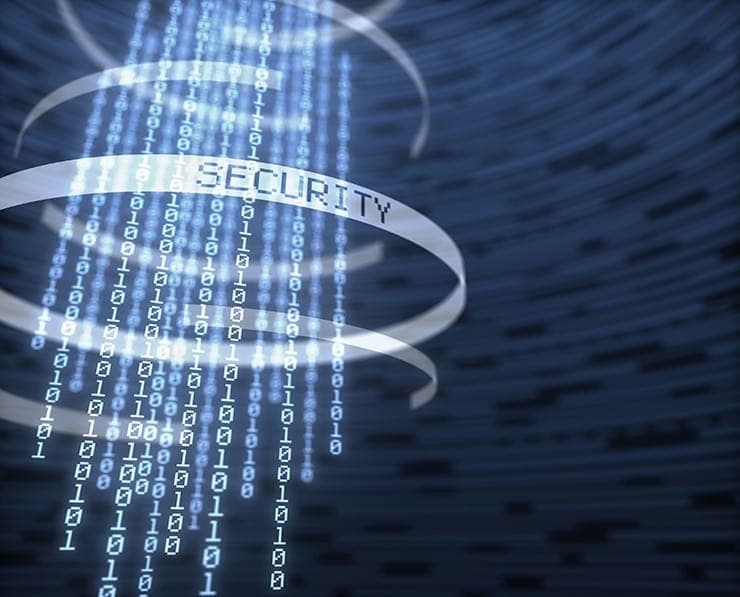Student Feedback
CS0-001: CompTIA CySA+ Certification Exam Certification Video Training Course Outline
Introduction
Cyber Security Analyst Role
Reconnaissance Techniques Section
Introduction
CS0-001: CompTIA CySA+ Certification Exam Certification Video Training Course Info
Cybersecurity Analyst CySA+ CS0-001 Complete Online Course
Complete Guide for CompTIA CySA+ – Test Your Skills and Achieve Certification!
What You Will Learn From This Course
Master the skills required to detect, analyze, and respond to cybersecurity threats using behavioral analytics
Configure and utilize advanced threat detection tools for real-world environments
Conduct thorough security data analysis to identify vulnerabilities and risks
Develop practical strategies for incident response and threat mitigation
Gain the knowledge needed to successfully pass the CompTIA CySA+ CS0-001 exam
Understand key concepts in malware detection, threat intelligence, and security monitoring
Learn to interpret analytical findings to improve an organization’s overall security posture
Acquire the ability to work with security operations centers (SOC) and incident response teams
Explore the latest trends in cybersecurity threats, attacks, and advanced persistent threats (APTs)
Gain confidence in applying cybersecurity principles in practical IT environments
Learning Objectives
Understand the fundamentals of behavioral analytics in cybersecurity and how they differ from signature-based detection
Develop the ability to monitor network traffic, system logs, and security events for signs of malicious activity
Learn to analyze and correlate security data to identify potential threats and vulnerabilities
Gain proficiency in threat intelligence and how it informs proactive security measures
Understand the configuration and operation of security tools, including SIEM platforms, intrusion detection systems, and endpoint monitoring solutions
Learn to prioritize and respond to incidents based on severity, impact, and likelihood
Develop skills to produce actionable reports and recommendations for stakeholders
Understand the principles of vulnerability management and risk assessment
Gain the knowledge needed to comply with industry standards, frameworks, and regulations
Build a foundation for a successful career as a cybersecurity analyst
Target Audience
IT professionals seeking to advance their careers in cybersecurity
Security operations center (SOC) analysts looking to strengthen their practical skills
Network administrators and system engineers aiming to expand their security expertise
Vulnerability analysts and threat intelligence professionals looking for hands-on experience
Aspiring cybersecurity specialists preparing for the CompTIA CySA+ certification
IT managers and security team leaders seeking to improve team capabilities
Anyone interested in gaining a globally recognized certification in cybersecurity analysis
Overview
In today’s rapidly evolving digital landscape, organizations face an increasing number of cyber threats. Traditional signature-based security solutions are no longer sufficient to protect sensitive data and IT infrastructures. The CompTIA Cybersecurity Analyst (CySA+) certification equips IT professionals with the skills to analyze, detect, and respond to threats using behavioral analytics. This approach enhances threat visibility and enables organizations to proactively mitigate risks.
The CySA+ certification focuses on real-world application rather than theoretical knowledge, making it highly valuable for IT professionals who want to work in security operations, threat analysis, and incident response roles. By learning how to interpret complex security data, professionals can identify anomalies, detect threats early, and reduce the impact of cyberattacks.
This course is designed to provide a comprehensive learning experience, combining theoretical concepts with practical exercises. Students will explore key topics including threat detection, security monitoring, incident response, and risk management. Each lesson is structured to build confidence in using advanced security tools and applying analytical skills in real-world scenarios.
The course also emphasizes the importance of understanding the broader cybersecurity landscape. As cyber attackers evolve their techniques, security analysts must continuously update their skills and knowledge. By completing this course, students will be prepared to handle modern cybersecurity challenges and contribute effectively to an organization’s defense strategy.
CySA+ certification is globally recognized and vendor-neutral, making it a valuable credential for IT professionals around the world. It aligns with international standards and industry best practices, ensuring that certified professionals have the skills necessary to perform at a high level. This certification is also recognized by regulatory bodies and can support career advancement and higher earning potential.
In addition to technical skills, the course highlights the strategic aspects of cybersecurity. Students will learn to evaluate threats in the context of business objectives, understand regulatory requirements, and provide actionable recommendations to stakeholders. This holistic approach ensures that cybersecurity analysts are not only technically proficient but also capable of supporting organizational goals.
Throughout the course, students will engage with realistic practice scenarios, simulating the types of challenges they will encounter on the job. These exercises are designed to reinforce learning and provide hands-on experience with tools and techniques commonly used in security operations centers. By practicing in a controlled environment, students can develop confidence and competence before applying their skills in professional settings.
Cybersecurity is one of the fastest-growing fields in IT, and professionals with behavioral analytics skills are in high demand. Organizations require experts who can proactively identify threats, analyze patterns, and implement effective mitigation strategies. Completing this course and earning the CySA+ certification can open doors to a variety of career opportunities, including roles in SOCs, cybersecurity consulting, threat intelligence, and IT security management.
The course also prepares students to meet compliance and regulatory standards. Understanding these requirements is essential for organizations that handle sensitive data or operate in regulated industries. By gaining knowledge in risk management, vulnerability assessment, and security policy implementation, students will be able to support their organization’s compliance objectives.
By the end of the course, students will have a comprehensive understanding of cybersecurity analysis principles and practical skills to detect and respond to threats. They will be prepared to take the CompTIA CySA+ CS0-001 exam with confidence, equipped with the knowledge and practice needed to achieve certification. The skills acquired through this course are directly applicable to real-world cybersecurity roles, providing long-term career value.
Prerequisites
Basic understanding of IT concepts, networking, and security fundamentals
Familiarity with operating systems such as Windows, Linux, or macOS
Experience with networking protocols and infrastructure components
Basic knowledge of cybersecurity principles, including threat types and attack vectors
Understanding of risk management concepts and information security policies
Prior experience with IT tools and systems monitoring is beneficial but not required
Completion of CompTIA Security+ or equivalent experience is recommended for optimal learning outcomes
Motivation to learn and apply cybersecurity analysis skills in practical scenarios
Course Modules / Sections
This course is organized into structured modules that provide a step-by-step approach to mastering the skills required for CompTIA CySA+ certification. Each module is designed to build on previous knowledge while introducing practical exercises to reinforce learning. The modules cover foundational concepts, intermediate techniques, and advanced cybersecurity analytics practices, ensuring that students gain a thorough understanding of behavioral analytics, threat detection, and incident response.
The first module introduces students to the fundamentals of cybersecurity analysis, including the principles of threat detection, types of cyberattacks, and the importance of behavioral analytics. Students will gain a strong understanding of the security landscape, common attack methods, and the tools used to monitor and protect IT environments.
The second module focuses on practical threat detection skills. Students will learn to configure and use security information and event management (SIEM) tools, intrusion detection systems (IDS), and endpoint detection solutions. This module emphasizes hands-on practice, allowing learners to simulate attacks and detect suspicious behavior in controlled lab environments.
The third module covers data analysis techniques essential for cybersecurity professionals. Students will explore how to collect, process, and analyze log data, network traffic, and system events. Emphasis is placed on interpreting data to identify vulnerabilities, anomalous activity, and potential threats. Students will learn to correlate information from multiple sources to develop actionable insights.
The fourth module addresses vulnerability management and risk assessment. Learners will gain knowledge on conducting vulnerability scans, interpreting results, prioritizing remediation efforts, and implementing risk mitigation strategies. This module ensures that students understand how to proactively reduce an organization’s attack surface.
The fifth module is dedicated to incident response and mitigation. Students will learn how to create and implement effective incident response plans, coordinate response efforts across teams, and communicate findings to stakeholders. Real-world scenarios will provide hands-on experience in managing security incidents, from detection to resolution.
The sixth module focuses on threat intelligence and advanced persistent threat (APT) analysis. Learners will study how attackers operate, understand their tactics, techniques, and procedures (TTPs), and develop strategies to anticipate and prevent attacks. This module emphasizes the importance of continuous monitoring, threat hunting, and proactive defense measures.
The final module prepares students for the CompTIA CySA+ certification exam. It includes comprehensive review sessions, simulated practice exams, and targeted exercises designed to reinforce key concepts and improve exam readiness. Students will receive guidance on test-taking strategies and approaches to ensure confidence on the day of the exam.
Key Topics Covered
The course covers a wide range of critical topics required for cybersecurity analysts to succeed in the modern IT security landscape. The curriculum blends theoretical knowledge with practical application to ensure learners develop actionable skills.
Threat Detection and Analysis: Students learn the core concepts of threat detection, including understanding attack vectors, malware types, and intrusion methods. Emphasis is placed on using behavioral analytics to identify threats that traditional signature-based methods may miss.
Security Tools Configuration: Learners gain proficiency in deploying and configuring security tools such as SIEM platforms, intrusion detection and prevention systems, endpoint monitoring tools, and network security solutions. This practical knowledge enables students to monitor environments effectively and detect anomalies quickly.
Data Collection and Analysis: The course teaches students how to gather and analyze logs, network traffic, and endpoint data. Methods for identifying patterns, detecting anomalies, and correlating information from multiple sources are explored in detail.
Vulnerability Assessment and Management: Students learn to conduct vulnerability assessments, interpret findings, and prioritize remediation. Best practices for patch management, configuration management, and risk assessment are also covered.
Incident Response and Handling: This section focuses on developing and executing incident response plans. Students practice detecting, containing, eradicating, and recovering from security incidents. Communication and documentation strategies for incidents are emphasized to ensure a professional response.
Threat Intelligence and APT Analysis: The curriculum introduces students to advanced threat intelligence practices, including analyzing attacker behavior, understanding TTPs, and anticipating potential attacks. Threat hunting techniques and proactive defense strategies are discussed in depth.
Compliance and Governance: Students gain insights into regulatory requirements, industry standards, and best practices that influence cybersecurity operations. Understanding compliance frameworks helps analysts ensure that organizations meet legal and contractual obligations.
Risk Management and Strategic Decision Making: The course emphasizes risk-based approaches to cybersecurity. Students learn to assess risk, prioritize resources, and develop strategies to minimize impact while supporting business objectives.
Reporting and Communication: Students develop the skills to present findings and recommendations clearly to stakeholders. This includes preparing reports, dashboards, and visualizations that convey technical information effectively to non-technical audiences.
Practical Lab Exercises: Throughout the course, learners engage in hands-on labs that simulate real-world security challenges. These exercises reinforce concepts, improve technical proficiency, and prepare students for on-the-job scenarios.
Exam Preparation: The course includes full-length practice exams and review exercises aligned with the CompTIA CySA+ exam objectives. Strategies for managing time, answering multiple-choice questions, and approaching scenario-based questions are covered.
Teaching Methodology
The course uses a combination of instructional approaches to maximize learning outcomes. The methodology blends lectures, demonstrations, hands-on labs, and assessments to create an engaging and practical learning experience.
Video Lectures: In-depth video lectures introduce each topic, explaining core concepts, best practices, and real-world applications. Lectures are structured to ensure learners understand both theoretical and practical aspects of cybersecurity analysis.
Demonstrations: Live demonstrations provide step-by-step guidance on configuring security tools, analyzing data, and responding to incidents. Demonstrations allow students to see the application of concepts in realistic IT environments.
Hands-On Labs: Practical labs are a core component of the course. Students work on simulated networks, endpoints, and security platforms to practice threat detection, vulnerability management, and incident response. Labs are designed to replicate the types of challenges analysts face in professional settings.
Scenario-Based Learning: The course presents students with realistic cybersecurity scenarios, encouraging critical thinking and problem-solving. Learners must analyze data, identify threats, and recommend appropriate actions, mirroring the responsibilities of real cybersecurity analysts.
Interactive Exercises: Quizzes, exercises, and practice challenges are included throughout the course to reinforce learning and provide immediate feedback. Interactive activities ensure that students engage actively with the material.
Guided Review Sessions: Each module includes review sessions to consolidate knowledge and address common areas of difficulty. These sessions highlight key points, summarize essential concepts, and provide strategies for applying learning in real-world contexts.
Instructor Support: Learners have access to expert guidance from experienced cybersecurity instructors. Support includes explanations, clarifications, and practical tips for mastering complex topics.
Progressive Learning: The course follows a structured approach, gradually increasing in complexity. Students build foundational knowledge first, then move on to advanced skills, ensuring a smooth learning curve and confidence in applying what they learn.
Real-World Application: Emphasis is placed on applying learned skills in real-world IT environments. This approach ensures students can transition from theory to practice effectively, preparing them for professional roles and certification exams.
Assessment & Evaluation
Student progress is continuously assessed to ensure mastery of course material. Multiple evaluation methods are employed to measure understanding, practical skills, and readiness for the CompTIA CySA+ exam.
Practice Exams: Full-length practice exams simulate the structure, timing, and difficulty of the real certification test. These exams provide students with an opportunity to apply their knowledge, test their readiness, and identify areas requiring further study.
Lab Assessments: Hands-on lab exercises are evaluated based on completion, accuracy, and adherence to best practices. Lab assessments reinforce practical skills, ensuring learners can effectively implement security measures in real-world scenarios.
Quizzes: Short quizzes are provided at the end of each module to test comprehension of key concepts. These quizzes serve as checkpoints, helping students identify strengths and areas needing additional review.
Scenario Evaluations: Scenario-based assessments challenge students to analyze data, identify threats, and propose solutions. Evaluations focus on the quality of analysis, decision-making, and the ability to prioritize actions based on risk.
Performance Feedback: Instructors provide detailed feedback on assessments, highlighting correct approaches, common mistakes, and strategies for improvement. Feedback ensures learners can refine their skills and build confidence.
Progress Tracking: The course includes tools to track student progress across modules, labs, and assessments. Learners can monitor their completion, performance, and areas needing reinforcement.
Certification Readiness: Evaluation metrics are aligned with CompTIA CySA+ exam objectives to ensure that students are prepared for the certification test. Performance in assessments reflects real-world competency and exam readiness.
Continuous Improvement: Students are encouraged to review assessments, repeat exercises, and apply feedback to strengthen their understanding. This iterative approach ensures mastery of critical skills and concepts.
The course’s comprehensive assessment framework ensures that learners gain both theoretical knowledge and practical expertise. By completing evaluations and practice exercises, students develop the confidence and capability needed to succeed as cybersecurity analysts and achieve the CompTIA CySA+ certification.
Benefits of the Course
This course is designed to provide learners with comprehensive skills and knowledge to excel in cybersecurity analysis. Completing this training offers numerous benefits that extend beyond exam preparation, equipping students with practical expertise and career-enhancing capabilities.
Students will gain a deep understanding of behavioral analytics and threat detection, enabling them to identify vulnerabilities, detect malicious activity, and respond effectively to security incidents. This knowledge is essential for protecting an organization’s IT infrastructure and ensuring the confidentiality, integrity, and availability of critical data.
The course provides hands-on experience with real-world tools and scenarios, allowing learners to apply theoretical knowledge in practical settings. By practicing in simulated environments, students can develop confidence in using SIEM platforms, intrusion detection systems, and endpoint monitoring tools. These skills are directly transferable to professional cybersecurity roles.
Completing this course also enhances career opportunities. The CompTIA CySA+ certification is internationally recognized and highly respected within the IT and cybersecurity industries. Professionals who hold this certification are often preferred for positions such as IT Security Analyst, SOC Analyst, Threat Intelligence Analyst, and Cybersecurity Specialist.
Learners also benefit from improved analytical and problem-solving skills. The course emphasizes interpreting complex security data, correlating information from multiple sources, and making informed decisions to mitigate threats. These abilities are crucial for effective cybersecurity analysis and incident response.
In addition, students will acquire knowledge of regulatory requirements, industry standards, and best practices in cybersecurity. This ensures that professionals can support organizational compliance efforts while maintaining strong security postures. Understanding compliance frameworks and governance principles also positions learners as strategic contributors within their organizations.
The course further provides preparation for the CompTIA CySA+ certification exam. Practice exams, lab exercises, and scenario-based learning allow students to assess their readiness and refine their skills. This targeted preparation increases the likelihood of passing the exam on the first attempt.
Another benefit is the ability to work confidently in high-pressure situations. By engaging with real-world scenarios, learners develop the ability to respond to incidents efficiently and effectively. This practical experience is invaluable for career growth and professional development.
Finally, completing this course supports long-term earning potential. Cybersecurity analysts are in high demand, and organizations value certified professionals who can protect critical digital assets. CySA+ certification demonstrates competency, reliability, and readiness to handle complex cybersecurity challenges, making students more competitive in the job market.
Course Duration
The course is designed to provide a comprehensive learning experience while allowing students to progress at a manageable pace. The total duration is approximately 40 to 50 hours, depending on the learner’s prior experience and study habits. This includes time for lectures, demonstrations, hands-on labs, assessments, and practice exams.
Each module is structured to balance theoretical instruction with practical application. On average, students will spend 4 to 6 hours per module, with additional time allocated for lab exercises and review sessions. The duration is flexible to accommodate both full-time learners and working professionals pursuing the course part-time.
The practice exams and scenario-based exercises are designed to simulate real-world conditions, providing students with the experience necessary to handle actual cybersecurity challenges. Completing these exercises may require extra time, but they are critical for building competency and confidence in applying learned skills.
The course is self-paced, allowing learners to revisit complex topics, practice skills, and reinforce understanding as needed. This flexibility ensures that students can master all course content thoroughly before attempting the certification exam.
Additionally, optional supplementary materials, such as reference guides, cheat sheets, and lab documentation, provide additional learning opportunities. Students can use these resources to deepen their understanding of cybersecurity concepts and enhance practical skills.
The estimated duration also accounts for time spent on interactive exercises, quizzes, and review sessions. These components are essential for reinforcing knowledge and ensuring that learners retain critical information for both professional application and exam readiness.
The course is structured to provide a logical progression from foundational concepts to advanced cybersecurity analysis techniques. By pacing the learning experience, students can build confidence while gradually expanding their expertise. This approach ensures a strong grasp of both theoretical principles and practical application.
Ultimately, the course duration is designed to provide a thorough and effective learning experience. By the end of the training, students will have acquired the skills, knowledge, and confidence necessary to excel as cybersecurity analysts and successfully achieve CompTIA CySA+ certification.
Tools & Resources Required
To fully benefit from this course, students should have access to specific tools and resources that facilitate hands-on practice, data analysis, and threat detection exercises. These tools allow learners to apply theoretical knowledge in practical scenarios, preparing them for real-world cybersecurity challenges.
A personal computer or laptop with a reliable internet connection is essential. This will allow students to access course materials, participate in online labs, and use security tools without interruptions. The computer should have sufficient processing power, memory, and storage to handle virtual lab environments.
Virtual lab environments are a critical resource for practicing threat detection, incident response, and security monitoring. Students will use these labs to simulate attacks, analyze security data, and respond to incidents in a controlled setting. Virtual labs provide a safe and realistic environment to build practical skills.
Security tools such as Security Information and Event Management (SIEM) platforms, intrusion detection and prevention systems (IDS/IPS), endpoint detection and response (EDR) tools, and network monitoring applications are essential for hands-on exercises. The course provides guidance on configuring and using these tools effectively.
Access to operating systems such as Windows, Linux, and macOS is recommended for performing practical exercises. Familiarity with these systems allows students to analyze logs, monitor network activity, and practice security configurations across different environments.
Reference materials, including documentation, guides, and cybersecurity frameworks, are valuable resources for understanding best practices, regulatory requirements, and industry standards. These materials support learning and reinforce concepts introduced during lectures and labs.
Practice exam software and assessment tools are also required to simulate the certification exam experience. These resources help students track progress, evaluate knowledge retention, and identify areas needing improvement.
Additional resources such as online forums, discussion groups, and instructor support enhance the learning experience. Engaging with peers and experts allows students to clarify concepts, share insights, and gain practical advice for applying cybersecurity skills effectively.
Finally, a willingness to invest time and effort is a critical resource. Active participation in lectures, labs, and practice exercises ensures that students maximize the benefits of the course and develop the competencies necessary for professional success.
By utilizing these tools and resources, students can gain practical experience, reinforce theoretical knowledge, and build the confidence required to succeed in the cybersecurity field. Mastery of these resources ensures that learners are well-prepared for both real-world roles and the CompTIA CySA+ certification exam.
Career Opportunities
Completing the CompTIA Cybersecurity Analyst (CySA+) course opens a wide range of career opportunities for IT professionals seeking to specialize in cybersecurity. This certification is globally recognized and demonstrates a professional’s ability to detect, analyze, and respond to cybersecurity threats effectively. Professionals holding CySA+ certification are in high demand across various industries, including finance, healthcare, government, and technology.
A common career path for CySA+ certified professionals is the role of an IT Security Analyst. These professionals are responsible for monitoring networks, analyzing security data, and implementing measures to protect systems from cyber threats. They play a key role in ensuring that organizational data remains secure and that potential vulnerabilities are addressed proactively.
Security Operations Center (SOC) Analyst positions are also well-suited for CySA+ graduates. SOC Analysts work in specialized teams that monitor security events, detect intrusions, and respond to incidents in real time. The analytical skills gained through this course, particularly in interpreting logs, identifying patterns, and responding to threats, are essential for SOC roles.
Vulnerability Analysts and Threat Intelligence Analysts are additional career options. These roles focus on identifying weaknesses in IT infrastructures, understanding attacker behavior, and providing actionable intelligence to prevent cyberattacks. Professionals in these positions use advanced tools and methodologies, many of which are covered in this course, to support proactive defense strategies.
Cybersecurity Specialists and Security Engineers also benefit from CySA+ certification. These professionals design, implement, and maintain security systems and protocols. They ensure that organizations comply with regulatory standards and protect critical assets from potential threats. CySA+ provides a strong foundation for these advanced roles, equipping learners with the analytical and practical skills needed to succeed.
Organizations increasingly rely on cybersecurity analysts to support compliance and governance initiatives. Professionals who understand regulatory requirements, industry standards, and risk management principles are highly valued. CySA+ certified individuals are prepared to contribute to organizational security strategies while ensuring adherence to legal and regulatory frameworks.
Freelance and consulting opportunities are another avenue for CySA+ graduates. Many organizations seek external experts to assess security postures, conduct risk assessments, and implement security solutions. Professionals with this certification can offer consulting services, providing tailored security solutions and guidance to multiple clients.
The demand for cybersecurity professionals continues to grow rapidly. According to industry reports, information security analysts are among the fastest-growing occupations in the technology sector. By earning CySA+ certification, learners position themselves for high-demand roles with opportunities for career advancement, specialization, and increased earning potential.
Additionally, the skills acquired through this course are applicable globally. Organizations worldwide require qualified cybersecurity analysts to monitor and protect IT infrastructures. CySA+ certification is recognized across regions, making it a versatile credential for professionals seeking international career opportunities.
The course also equips learners with skills that are transferable across related domains, including network security, cloud security, and incident response. This versatility allows certified professionals to pursue diverse roles in IT security and adapt to evolving industry demands.
Conclusion
The CompTIA Cybersecurity Analyst (CySA+) course provides a comprehensive and practical pathway for IT professionals seeking to specialize in cybersecurity. Through a combination of theoretical instruction, hands-on labs, and scenario-based exercises, students gain the knowledge and skills necessary to detect, analyze, and respond to cybersecurity threats effectively.
The course emphasizes behavioral analytics, a critical approach for identifying modern cyber threats that traditional signature-based methods may miss. Students learn to monitor networks, analyze system data, and interpret security findings, ensuring that they can protect organizational assets and respond proactively to incidents.
Completing this course prepares learners for the CompTIA CySA+ certification exam, a globally recognized credential that validates critical cybersecurity skills. The curriculum is aligned with industry standards, providing learners with practical experience and confidence to succeed in professional roles.
By mastering tools such as SIEM platforms, intrusion detection systems, and endpoint monitoring solutions, students gain practical expertise that directly applies to real-world environments. These skills are essential for IT Security Analysts, SOC Analysts, Threat Intelligence Analysts, and other cybersecurity professionals.
The course also supports career advancement by providing knowledge in regulatory compliance, risk management, and organizational security strategy. Learners acquire the ability to make informed decisions, prioritize threats, and implement effective security measures, making them valuable contributors to any organization’s security posture.
Hands-on labs and practice exercises reinforce learning and build confidence in applying skills under realistic conditions. These exercises ensure that students are prepared to handle actual cybersecurity incidents, from detection to resolution, and develop problem-solving skills essential for modern IT environments.
Overall, this course equips students with both the technical proficiency and analytical capabilities required to excel as cybersecurity professionals. The combination of structured modules, practical labs, and exam preparation makes it an ideal choice for IT professionals aiming to advance their careers and achieve certification.
Enroll Today
Enrolling in the CompTIA Cybersecurity Analyst (CySA+) course is a strategic step toward building a successful career in cybersecurity. By registering, learners gain access to comprehensive instructional materials, hands-on labs, and practice exams designed to provide both knowledge and practical skills.
Students can take advantage of the structured curriculum, covering foundational concepts, advanced threat detection techniques, incident response strategies, and risk management principles. Each module is designed to build confidence and competence, preparing learners for real-world cybersecurity challenges and certification success.
The course offers flexible learning options, allowing students to progress at their own pace while balancing professional and personal commitments. With access to expert guidance, interactive exercises, and simulated exam environments, learners can reinforce understanding and apply skills effectively.
By enrolling today, learners position themselves for career growth, international recognition, and professional development in the rapidly expanding field of cybersecurity. CySA+ certification opens doors to high-demand roles, competitive salaries, and opportunities for continuous advancement.
Taking this step demonstrates a commitment to professional excellence and a proactive approach to developing cybersecurity expertise. Students gain not only certification readiness but also practical skills that organizations value, ensuring long-term career benefits.
Enroll today to begin your journey toward becoming a skilled cybersecurity analyst, equipped with the knowledge, experience, and credentials needed to thrive in the ever-evolving IT security landscape.













